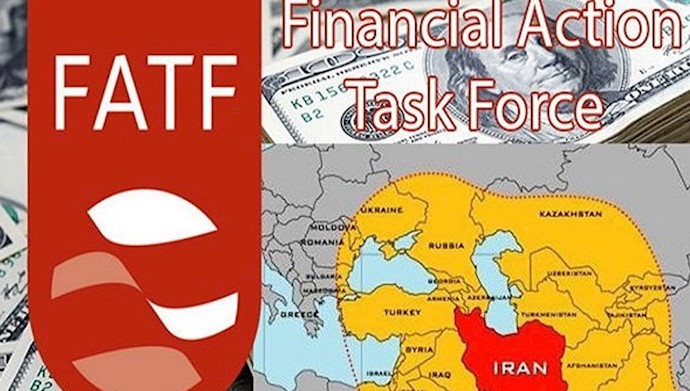Analysis by PMOI / MEK
Iran, Dec. 12, 2018 – On December 5, the Iranian regime’s parliament amended and passed the bill to join the International Convention for the Suppression of the Financing of Terrorism (CFT) after having reviewed the considerations of the Guardian Council’s. The bill will next be sent to the Expediency Council for final approval. One would think that after all this back-and-forth, the controversy surrounding the FATF in Iran would settle down. But it didn’t.
While media outlets close to regime president Hassan Rouhani quoted deputy spokesperson of parliament Ali Motahari as saying that the three branches of government and the Guardian Council had agreed on the approval of the bill, Ahmad Alamolhoda, the Friday Prayer leader of the holy city of Mashhad, and Khamenei’s representative in the province, viewed it differently.
In his weekly Friday Prayers in Mashhad last week, Alamolhoda said: “You’ve sacrificed the nuclear technology of this nation and country, which was mixed with the blood of nuclear martyrs, in front of Europe and the U.S. Even worse, by approving the CFT and joining the FATF, you’ve limited the economic and political character of this country. You sacrifice in front of the Europeans hoping that they’ll do you a favor in response to the American sanctions.”
“You’re still sticking to Europe. Approve the CFT, if the Guardian Council disapproves, take it to the parliament and from the parliament take it to the Expediency Council. There you can join with some of your accomplices and approve this [bill].”
Since the conservatives were not able to persuade most of the Friday Prayer leaders and representatives of Ali Khamenei in Iranian provinces to join them in the last Friday Prayers, they attempted to speak out their opinions through junior speakers who spoke before the main prayers.
In Isfahan’s Friday Prayers, the so-called Secretary of the Muslim Student Association said: “If there had been transparency in the votes, the FATF, this colonization bill which is equivalent to the word ‘self-sanctioning’, wouldn’t have been passed in the parliament. This bill is against the Sharia, reason, and the 153rd principle of the constitution.”
In Babel, a Basij representative from the Nushirvani University said: “For several years they’ve wasted the time of people with the JCPOA and now they’re struggling for FATF.”
In Astan-e Ashrafie, another member of the Basij said in the Friday Prayers: “FATF is the reason for these self-sanctions. We have to sanction the courageous children of the country, in our country and with our own hands. Why?”
The truth is that the ruling theocracy in Iran faces a strategic crossroad of concessions and cooperation on the one hand and escalation and crisis on the other.
The mullahs either have to accept the FATF and let go of supporting Hamas, Hezbollah, and the rest of the terrorist basket in the region and around the world, or they have to face a growing consensus among the international community and increasing political and economic isolation which will lead to more popular unrest.
But that’s not the whole story. Contrary to what most so-called pundits claim, the former option for Iran will inevitably lead to the same strategic outcome for the Iranian theocracy as the latter. The circumstances and how-tos will surely differ but the end-result will be the same.
That may sound surprising or even unbelievable but to analysts familiar with the Iranian regime’s power structure, ideology, and philosophy this is as believable and logical as how this very regime succeeded in sending minors collected from school bunks to clear minefields in the Iran-Iraq war, with the promise of heaven and a key to paradise around their necks.
The Iranian regime, in order to become a responsible and “normal” member state of the global community, has to back off from its terrorist ambitions that rest on an expansionist world view. The founding father of the Iranian theocracy, the notorious Ayatollah Ruhollah Khomeini, knew his constituency very well. Conceding to the “Great Satan”, and even cooperating with it, while distancing oneself from the so-called revolutionary groups will have shattering consequences which will resonate throughout the entire Iranian power structure from the most senior levels in the IRGC and the clergy down to the poor workers in the bazaar or a factory on whose support the regime relies.
Like a virus, the full acceptance of the FATF will replicate and transcend all the while silently transforming the identity and philosophical pillars of the theocracy to the level that a new phenomenon emerges.
And that is just another form of revolution and change. It’s only slower and maybe less evident but as effective, nonetheless. That’s also why we call these types of concessions by the regime as chalices of poison.
It’s only imperative to hold the Iranian regime to account when it commits to such treaties and promises verbally to make sure it really adheres to them.
Change is painful after all and something one would rather avoid. And in this particular case it’s inevitably fatal.





